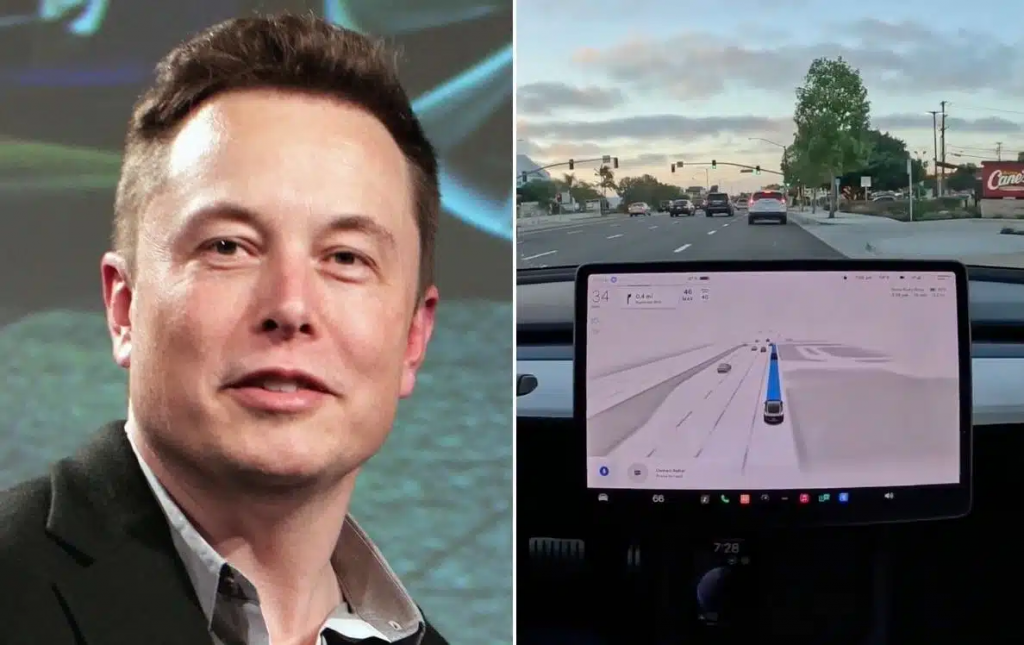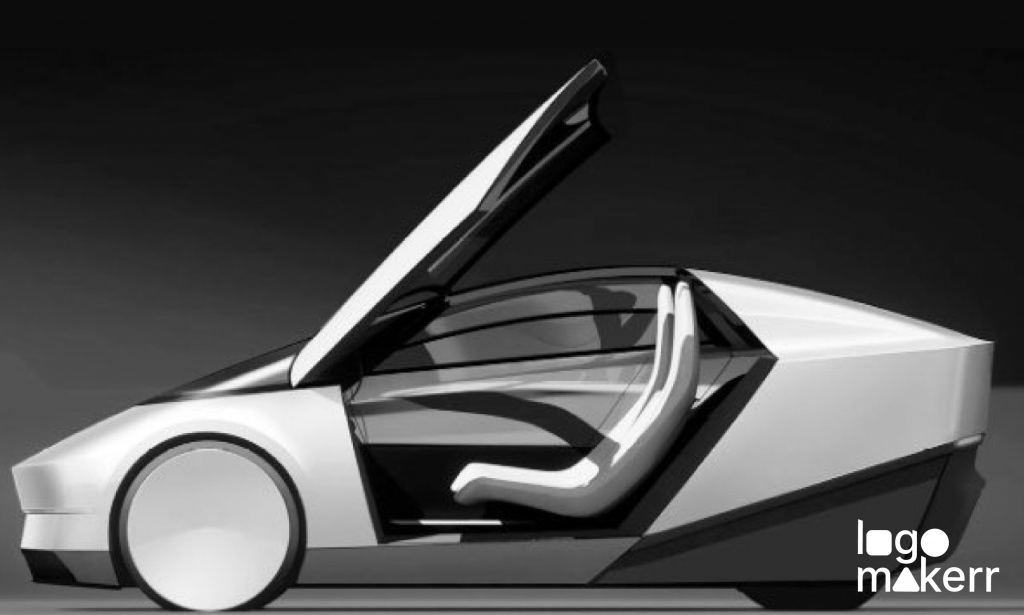Tesla has done it again. Last night, the company officially launched its much-anticipated Robotaxi, a significant step forward in autonomous transportation. This isn’t just a new vehicle; it’s a shift in how we’ll get around, and Tesla’s bold vision is leading the charge. Let’s take a moment to explore Tesla’s journey, the technology behind Robotaxi, and what this means for the future of mobility.
Of course, we at Logomakerr.ai tries our best to give you the best resources. So if you have the business plan to start a company in automotive industry, we have the right car logo pre-designed templates for you – which we’ll share at the bottom of this article!
A Brief History of Tesla: From Electric Sports Cars to Robotaxis

Tesla, Inc., founded in 2003 by Martin Eberhard and Marc Tarpenning, started with a clear goal: to accelerate the world’s transition to sustainable energy. Elon Musk, who joined the company as an early investor in 2004, quickly became its most recognizable face, guiding the company’s evolution from a niche startup into a tech giant.
The Tesla Roadster, launched in 2008, was the first to showcase the brand’s capabilities—a high-performance electric sports car that could rival traditional gasoline vehicles. The 2012 debut of the Model S further proved Tesla’s capabilities, introducing a luxury electric sedan with range and performance previously unseen in the EV space. It was the start of a broader revolution.
Fast forward to today, and Tesla’s lineup includes a variety of models—each more advanced than the last. With vehicles like the Model X, Model 3, Model Y, and the upcoming Cybertruck, Tesla has pushed the boundaries of design, performance, and technology. But the launch of Robotaxi represents something even more transformative: an entire reimagining of transportation as we know it.

What Is Tesla’s Robotaxi?
Robotaxi is exactly what it sounds like—a fully autonomous, driverless taxi service. Tesla’s vision for this product is simple: to offer a convenient, affordable, and efficient transportation option that doesn’t require human input.
Powered by Full Self-Driving (FSD) technology, Robotaxi uses a combination of cameras, sensors, and advanced AI software to navigate, identify obstacles, and make real-time driving decisions—all without a driver.

Passengers will simply book a ride using the Tesla app, and a Robotaxi will arrive to transport them to their destination.
Tesla’s AI-driven system is designed to optimize each ride, ensuring the safest and most efficient route possible. The aim? To offer rides at a fraction of the cost of traditional taxis or ride-hailing services—less than $0.18 per mile, according to Tesla’s estimates.
Why the Robotaxi from Tesla is instantly popular?
The introduction of Robotaxi isn’t just about convenience; it’s about redefining urban mobility. If Tesla’s rollout is successful, the implications are substantial. Here are a few key ways Robotaxi could change transportation:
Cost Efficiency
Traditional taxi and ride-hailing services, like Uber or Lyft, can be pricey, especially during peak hours or when demand surges. Tesla’s Robotaxi aims to undercut these costs significantly, making it an economical choice for daily commutes and long-distance trips alike.

Traffic Management
Tesla’s autonomous technology is designed to optimize traffic flow. By using real-time data and predictive algorithms, Robotaxi can choose the best routes and reduce congestion. In cities where traffic is an ongoing challenge, this could be a major advantage.
Sustainability
Tesla’s all-electric fleet emits zero emissions, directly supporting the company’s mission of sustainable transportation. With Robotaxi, Tesla has the potential to reduce the carbon footprint of urban transport, especially as more people opt for this cleaner alternative over traditional vehicles.
Economic Shifts
While some may be concerned about the impact of Robotaxi on jobs in the ride-hailing and taxi industries, Tesla’s network allows Tesla owners to add their cars to the Robotaxi fleet. This model could provide passive income for owners, allowing them to earn while their cars operate autonomously.
Tesla’s Robotaxi Technology – Safety at the core
Safety is a critical concern for any autonomous system, and Tesla has made this a priority with Robotaxi. The company’s Full Self-Driving software has undergone rigorous testing, accumulating over 300 million miles driven autonomously.
The data shows that Tesla’s FSD-equipped vehicles experience an average of one accident per 4.19 million miles, compared to the U.S. average of one accident per 484,000 miles.

The Robotaxi fleet benefits from Tesla’s over-the-air software updates, ensuring that all vehicles have the latest capabilities and improvements. This dynamic approach allows Tesla to continuously enhance the safety and functionality of its autonomous systems—something that’s crucial for gaining public trust.
Elon Musk has frequently emphasized that Tesla’s goal is to make Robotaxi safer than any human-driven vehicle. By leveraging advanced machine learning and AI technology, Tesla aims to minimize accidents and adapt quickly to various driving conditions.
On a little side note, we can’t forget the failed cyber truck launch where the CEO throws a rock and he broke the window. Well, at this point, we can all agree that mistakes are inevitable and a little humor that comes your business is unavoidable.
A Few Figures: Tesla’s Path by the Numbers
- Year Founded: 2003
- First Production Car: Roadster (2008)
- Global Deliveries in 2023: 1.3 million vehicles
- Autonomous Miles Driven by Tesla Fleet: Over 300 million
- Robotaxi Cost Per Mile: Less than $0.18 (projected)
These numbers highlight Tesla’s growth and ambition, particularly in autonomous technology. The launch of Robotaxi is the next chapter in this journey, and the stats show just how much the company has accomplished over the years.
Is it time for you to start an automotive business?
If yes, the first thing you need to do is to create a logo! Luckily, we at Logomakerr.ai offers thousands of pre-designed templates for the automotive industry. You can also choose from thousands of icons and color scheme – as well as our Google Font integration so you can have the best experience in finding your preferred typography.

Ready to get started? Watch this video on how to use our AI logo generator tool so you can have yours today for as low as $29!
Schlussfolgerung
Indeed, Tesla is setting the stage for a transportation revolution. While some may still have reservations about getting into a driverless vehicle, the numbers and technology behind Robotaxi are designed to reassure even the most cautious riders.
If you want more information about this revolutionize car, we suggest that you scour the internet today and read more articles like this.




